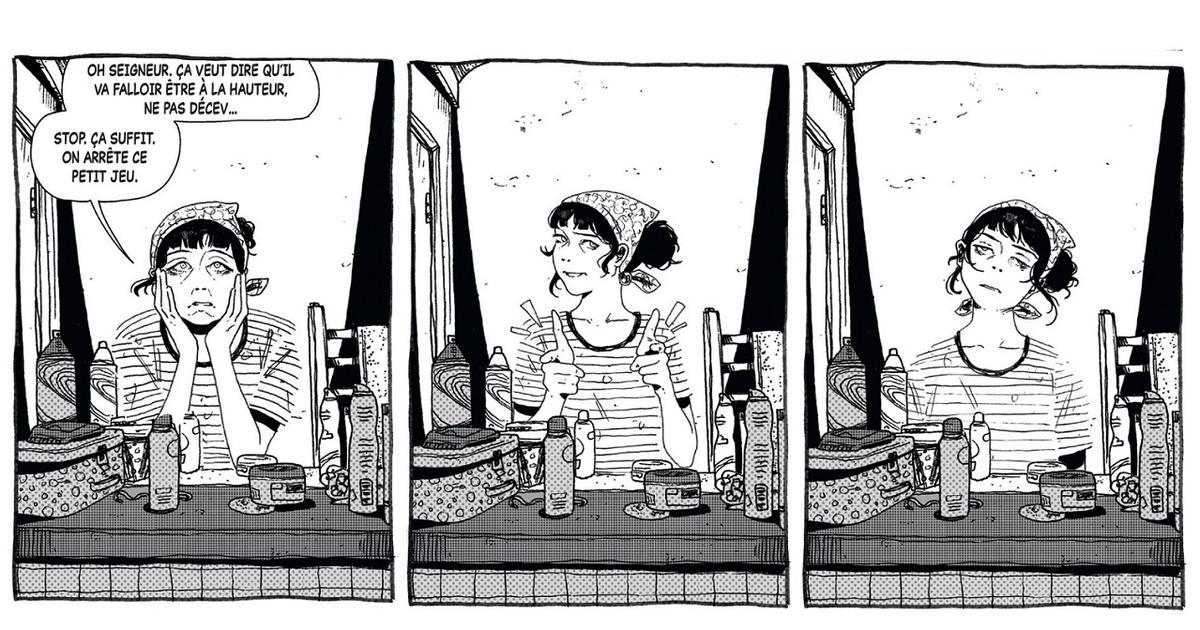IAIN SARJEANT / Getty Images
She was reading, by the pool of a neighborhood club in the city of Buenos Aires.
If someone reads near where I am, on a bus, a bar, a bench in a plaza or on the tiles of a swimming pool, my curiosity buzzes like an insect until it sticks its stinger into the cover of someone else's book, as if finding the right answer would be the beginning of a serious investigation on cultural consumption.
In the means of transport I dialogue with strangers.
In bookstores, I dare to ask why someone is buying the chosen copy.
The question has its reward.
Few are surprised or refuse to give an answer.
Sometimes, as if speaking to no one, I utter a word about the book that someone else is holding.
In this case, she, the reader, and I, the curious, were in a place that allows dialogue.
First I tried to see the cover of the book, but she held it in such a way that the cover, always tilted, did not reach my eyes.
When she went swimming for a while, she put the book among her things, neither hidden nor frankly in plain sight.
So accessing it would have been an intrusion that others would perceive, because they would surely see me rummaging through his belongings as if planning to steal something from him.
I did not dare.
I circled around her lounger, but a fold of the towel she had left unguarded covered the entire book, except for a bottom corner that only showed the gleaming white of the new cardboard.
There is no case, I told myself, either I don't know or I will have to ask him.
Suddenly a summer breeze blew the towel away and I could recognize the lid.
It was
Death in Venice,
by Thomas Mann, with a foreword by Francisco Ayala.
It was enough for us to start talking.
She had not seen Visconti's film, because she decided to read Thomas Mann's story first.
The decision incorporated its reading into an order in which the writing claimed priority over the cinematographic.
She had seen several Visconti films, but this was the first Thomas Mann story she had ever read, and she was proudly surprised.
A scene from 'Death in Venice', by Luchino Visconti.
She said she hadn't come to that book by chance.
A woman of more than 50 years, she had overlooked it, despite the film by Visconti, a filmmaker she admired and of whom she gave evidence of having seen two or three films, of which
Rocco and his brothers
and
El gatopardo
mentioned
.
He had also caught bits of
Death in Venice
,
the movie where Dirk Bogarde is Von Aschenbach,
on the internet
.
He had been moved by the film's music, as much as by the slow, subdued expression of his character.
I did not dare to ask him if he liked Mahler, which is the ominous and sublime sound of the tape.
It was enough, without that pedantic question, that he liked the bits he had heard on YouTube.
He arrived at
Death in Venice,
as I learned little by little, while the sun fell on the blue surface of the pool, in the way that is more predictable today: it was a novel where a plague dramatically modified the fate of its characters.
Mann, she told me, was telling us about our present.
I asked him if he had read the foreword by Francisco Ayala that opens the Spanish edition.
She pointed out, as obvious to anyone, that she preferred not to read prologues because it would prevent them from influencing her first relationship with a novel.
I then asked him if he read them after that novel was finished and he replied that neither, because he preferred to keep his own ideas and draw his own conclusions.
Before harshly judging this refusal, those of us who sometimes write prologues let us think a little what they are for a majority of readers who, today, inform themselves with the pills they find on the web.
The reader with whom he spoke believed that she kept her autonomy intact.
It occurred to me to tell him how much I had learned about books by reading Auerbach or Barthes, but it seemed to me that that was how I was sliding down a dangerous slope, where I was on the side of pedants who cite unfamiliar names.
I changed the subject, because it was preferable to talk about Visconti's film.
She anticipated me with her recollection of scenes, like the one where the blond teenage boy Tadzio circles Von Aschenbach on the beach, proving that, despite age and aspect, no one is ever completely innocent.
She was both aggressive and sympathetic to me in her independence, although if all readers practiced her with the same zeal, many of us would be out of work.
But she was right, because being a fiction reader did not oblige her to guarantee literary critics a source of livelihood.
Reading is an act of independence whose limits are not fixed or equal for everyone.
I remembered, however, that in my long history it was text explanations that enabled me to understand something from a mass of sometimes indecipherable words.
But, as she and I sat on the edge of the pool, it seemed neither the place nor the moment to expose the laborious chapters of my autobiography.
Those chapters did not interest her.
She preferred to be alone, face to face with Thomas Mann.
You can follow BABELIA on
and
, or sign up here to receive
our weekly newsletter
.













